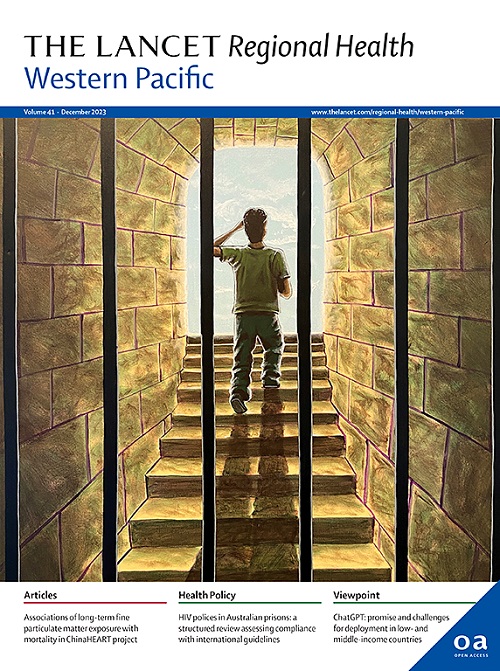Developing institutional policies for health professionals’ education reform: a case study of medical education in Viet Nam
IF 8.1
1区 医学
Q1 HEALTH CARE SCIENCES & SERVICES
引用次数: 0
Abstract
The Lancet 2010 Commission for Health Professionals' Education highlighted both instructional and institutional reforms to improve health professionals' training. While developed countries often have well-established policies to facilitate educational reform, such policies are limited in many developing countries, including Viet Nam. In this paper, we outline the development and implementation of three key institutional policies to enhance medical education in Viet Nam: (1) Establishing competency standards for the Medical Doctor (MD) program, (2) coordinating clinical training between medical universities and hospitals, and (3) setting up a national licensing examination. These policies were also evaluated against the Lancet Commission's recommendations. Decisive factors for Viet Nam's initial success include the pioneering mindset of its governmental leaders, close collaborations between academic and governmental institutions, and support from international organizations and experts. This paper may serve as a useful reference for low- and middle-income countries seeking to improve medical education and health professionals' training.
制定卫生专业人员教育改革的体制政策:越南医学教育案例研究
2010 年柳叶刀卫生专业人员教育委员会强调了改善卫生专业人员培训的教学和机构改革。发达国家通常拥有促进教育改革的完善政策,但在包括越南在内的许多发展中国家,此类政策却十分有限。在本文中,我们概述了越南为加强医学教育而制定和实施的三项关键制度政策:(1) 为医学博士(MD)课程制定能力标准,(2) 协调医科大学和医院之间的临床培训,以及 (3) 设立国家执业资格考试。还根据柳叶刀委员会的建议对这些政策进行了评估。越南取得初步成功的决定性因素包括政府领导人的开拓思维、学术机构与政府机构之间的密切合作以及国际组织和专家的支持。本文可为寻求改善医学教育和卫生专业人员培训的中低收入国家提供有益的参考。
本文章由计算机程序翻译,如有差异,请以英文原文为准。
求助全文
约1分钟内获得全文
求助全文
来源期刊

The Lancet Regional Health: Western Pacific
Medicine-Pediatrics, Perinatology and Child Health
CiteScore
8.80
自引率
2.80%
发文量
305
审稿时长
11 weeks
期刊介绍:
The Lancet Regional Health – Western Pacific, a gold open access journal, is an integral part of The Lancet's global initiative advocating for healthcare quality and access worldwide. It aims to advance clinical practice and health policy in the Western Pacific region, contributing to enhanced health outcomes. The journal publishes high-quality original research shedding light on clinical practice and health policy in the region. It also includes reviews, commentaries, and opinion pieces covering diverse regional health topics, such as infectious diseases, non-communicable diseases, child and adolescent health, maternal and reproductive health, aging health, mental health, the health workforce and systems, and health policy.
 求助内容:
求助内容: 应助结果提醒方式:
应助结果提醒方式:


